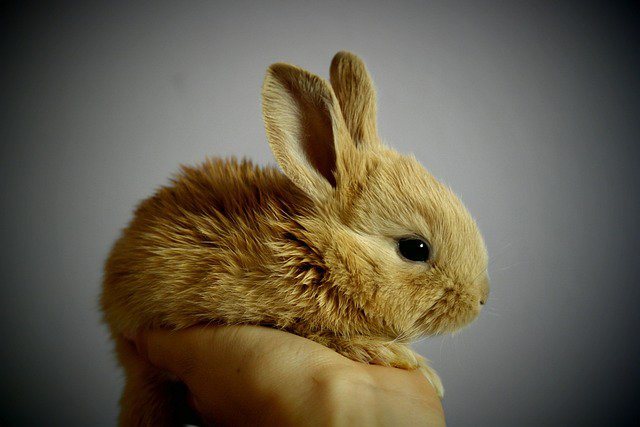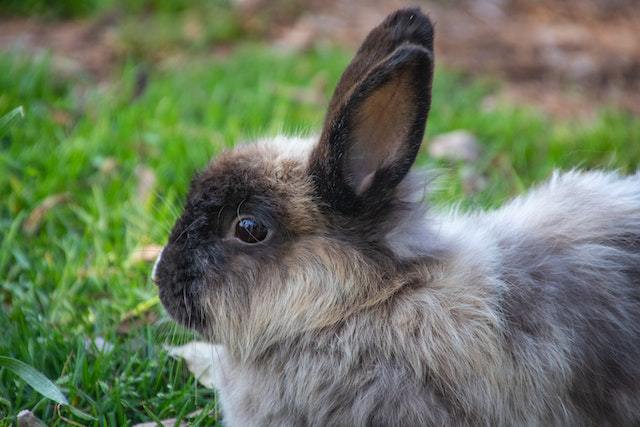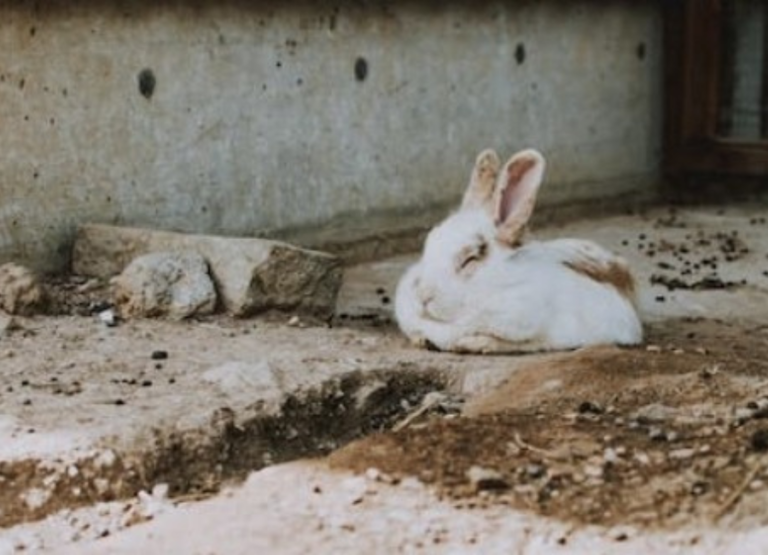How to Tell If Your Rabbit Doesn’t Like You [11 Signs]
![How to Tell If Your Rabbit Doesn’t Like You [11 Signs] How to Tell If Your Rabbit Doesn’t Like You](https://petcreeks.com/wp-content/uploads/2023/10/animal-4137865_640-1.jpg)
Let’s discuss how to tell if your rabbit doesn’t like you…
Have you ever wondered if your furry friend is giving you the cold shoulder? Well, worry no more!
In this quick guide, we’ll reveal some telltale signs that your rabbit might not be feeling the love.
So, let’s hop right into it!
How to Tell If Your Rabbit Doesn’t Like You
There are a few signs that may indicate if your rabbit doesn’t like you. First, if your rabbit avoids physical contact or runs away from you, and if your rabbit refuses treats or stops eating in your presence, it could indicate a lack of trust.
Also, aggressive behaviors like growling, biting, or scratching could suggest a negative association with you.
Lastly, if your rabbit displays a tense body posture or avoids eye contact, it may be trying to communicate its discomfort or fear.
Let’s dive deeper…
The following are some common ways to tell your rabbit doesn’t like you:
1. Your Rabbit Not Eating in Your Presence
If your rabbit is not eating in your presence, it may be a sign that they are not comfortable or do not like you. This can be addressed by first observing their behavior and body language to understand their preferences and boundaries.
Spend time sitting near them without trying to interact or touch them, allowing them to get used to your presence. Offer their favorite treats or foods to create positive associations.
Slowly introduce gentle interactions, such as petting or grooming, while monitoring their response. Patience, consistency, and respect for their boundaries are key to building trust and a positive relationship with your rabbit.
2. Your Rabbit Showing Avoidance Behavior Toward You
If your rabbit is showing avoidance behavior towards you, it may be a sign that they do not feel comfortable or do not like you. Some common signs of avoidance behavior include running away, hiding, or refusing to interact with you.
To address this issue, start by giving your rabbit space and allowing them to approach you on their own terms. Offer them treats or favorite foods to help build positive associations.
Spend time sitting near them without trying to touch or handle them, gradually building trust and rapport. Consult with a rabbit-savvy veterinarian or an animal behaviorist for further guidance if needed.
3. Your Rabbit Avoiding Eye Contact With You
If your rabbit avoids eye contact with you, it could be an indication that they don’t feel comfortable or have a lack of trust. To address this, create a calm and safe environment for your rabbit, ensuring they have plenty of hiding spots and space to explore.
Avoid making sudden movements or loud noises that could startle them. Spend time near your rabbit without directly approaching them, allowing them to become familiar with your presence.
Offer treats and positive reinforcement when they display relaxed behavior or approach you willingly. Gradually build trust by engaging in gentle interactions and allowing your rabbit to approach you on their own terms.
4. Your Rabbit Refusing to Take Treats From You
If your rabbit refuses to take treats from you, it could be an indication that they don’t feel comfortable or trust you yet. This behavior may suggest that your rabbit doesn’t like you or is wary of your presence.
To address this issue, start by giving your rabbit space and time to adjust to their new environment. Offer treats or food from a distance, allowing them to approach at their own pace.
Gradually build trust by spending quiet, calm moments with your rabbit, avoiding sudden movements or loud noises.
5. Your Rabbit Will Resist Being Petted By You
If your rabbit resists being petted by you, it could be a sign that your rabbit doesn’t like you. One common way to tell if your rabbit doesn’t like you is if they avoid or run away from you when you approach them.
Another sign is if your rabbit shows signs of aggression, such as biting or growling when you try to interact with them. In such a situation, it’s important to respect your rabbit’s boundaries and give them space.
You can try to build trust by spending time near your rabbit without trying to touch them, offering treats, and using positive reinforcement techniques to create a positive association with your presence.
6. Your Rabbit Will Not Come to You When You Come Close
If your rabbit doesn’t like you, one common way to tell is if it doesn’t come close when you approach. In such a situation, it’s important to respond with patience and understanding. Avoid forcing the rabbit to interact with you and instead give it space.
Spend time near the rabbit without imposing any physical contact, allowing it to become more comfortable with your presence. Gradually build trust through positive reinforcement, such as offering treats or toys, and let the rabbit approach you on its terms.
7. Lack of Interaction With You By Your Rabbit
Lack of interaction with your rabbit can be a sign that they may not like you. If your rabbit avoids physical contact, doesn’t come near you, or doesn’t respond to your attempts to interact, it could indicate a lack of bonding.
In such a situation, it is important to be patient and give your rabbit space. Spend time near their enclosure, speak softly to them, and offer treats to build trust. Gradually introduce positive interactions, such as gentle petting, and let them approach you on their terms.
8. Your Rabbit Does Not Want to Be Picked Up By You
When a rabbit does not want to be picked up by you, it could be a sign that it doesn’t feel comfortable or secure in your presence. Some common signs that your rabbit doesn’t like you picking it up include running away, hiding, or displaying aggressive behaviors like scratching or biting.
To respond in such a situation, it is important to respect the rabbit’s boundaries and give it space. Instead of picking it up, try building trust through positive interactions, such as offering treats, gentle petting, and spending time near the rabbit without imposing physical contact.
Gradually, the rabbit may become more comfortable with your presence and willingly approach you.
9. Your Rabbit Always Turns and Moves Away From You
When a rabbit consistently turns and moves away from you, it could be a sign that the rabbit doesn’t feel comfortable or doesn’t like you. In such a situation, it’s important to respond with patience and understanding.
Avoid forcing interaction and give the rabbit space to approach you on its own terms. Spend time near the rabbit without directly engaging, allowing it to observe your presence.
Gradually build trust by offering treats, speaking softly, and engaging in gentle, non-threatening movements. With time, the rabbit may become more comfortable and open to positive interactions.
10. Your Rabbit Always Bites or Tries to Bite You
If your rabbit consistently bites or tries to bite you, it may indicate that they do not feel comfortable or have a negative association with you. In such a situation, it is important to respond with patience and understanding.
Firstly, ensure that you are handling your rabbit gently and respecting their personal space. Secondly, try to build trust by offering treats and positive reinforcement when they display calm behavior. Thirdly, avoid sudden movements or loud noises that may startle your rabbit.
Fourthly, consult with a veterinarian to rule out any underlying health issues that may be contributing to their behavior. Lastly, consider seeking advice from a professional rabbit behaviorist for further guidance on how to improve your relationship with your rabbit.
11. Your Rabbit Always Showing Signs of Aggression Around You
When a rabbit consistently displays signs of aggression towards you, it is a clear indication that they may not like you. Aggressive behaviors can include lunging, biting, growling, or thumping their hind legs.
In such situations, it is important to respond calmly and avoid provoking the rabbit further. Give the rabbit space and avoid reaching out or handling them until their aggressive behavior subsides.
Building trust through positive reinforcement, such as offering treats and gentle interactions, can help improve the relationship over time. Consulting a veterinarian or an experienced rabbit behaviorist is also recommended for further guidance.
How to Make Your Rabbit Like You
Building a strong bond with your rabbit is essential to ensure a happy and healthy relationship. Here are some common ways to make your rabbit like you:
- Spend quality time together: Rabbits are social animals and enjoy companionship. Spend dedicated time with your rabbit every day, interacting and playing together.
- Offer tasty treats: Use treats as positive reinforcement to reward your rabbit’s good behavior. Offering their favorite treats will help create a positive association with you.
- Speak softly and gently: Rabbits have sensitive ears, so speaking softly and gently will help them feel more comfortable and secure in your presence.
- Provide a safe and comfortable environment: Ensure that your rabbit has a secure and comfortable living space. This will help them feel safe and relaxed, which in turn will foster trust and affection.
- Offer gentle petting: Rabbits have different preferences when it comes to being touched. Observe your rabbit’s body language and pet them gently in areas they enjoy, such as the forehead or cheeks.
- Learn your rabbit’s body language: Understanding your rabbit’s body language will help you respond appropriately to their needs. This will create a sense of trust and understanding between you and your furry friend.
- Play interactive games: Engage your rabbit in interactive games such as hide-and-seek or puzzle toys. This will stimulate their mind and provide opportunities for bonding.
- Respect their personal space: Rabbits value their personal space. Allow them to approach you on their terms, and avoid forcing interactions when they are not in the mood.
- Be patient and consistent: Building a strong bond with your rabbit takes time and patience. Consistency in your interactions, along with love and care, will help foster a deep and lasting connection.
Remember, every rabbit is unique, so it’s important to adapt these tips to suit your individual rabbit’s preferences and personality.
Frequently Asked Questions
How can I tell if my rabbit doesn’t like me?
If your rabbit doesn’t like you, they may exhibit certain behaviors such as avoiding contact, running away from you, or displaying signs of aggression. Keep an eye out for these signs to gauge their level of comfort and trust.
What are some signs of aggression in rabbits?
Signs of aggression in rabbits can include growling, lunging, biting, scratching, or thumping their hind legs. These behaviors indicate that your rabbit may be feeling threatened or stressed. It’s essential to approach them with caution and respect their boundaries.
My rabbit always runs away from me. Does that mean they don’t like me?
Rabbits are naturally prey animals, and their instinct is to flee from potential threats. If your rabbit runs away from you, it doesn’t necessarily mean they don’t like you. It could simply be their instinctual response. However, it’s important to work on building trust and creating a positive bond with your rabbit to help them feel more comfortable around you.
How can I build a stronger bond with my rabbit?
Building a stronger bond with your rabbit takes time and patience. Start by spending quality time with them every day, offering them treats, and engaging in gentle, positive interactions. Respect their personal space and let them approach you at their own pace. Eventually, your rabbit will learn to associate you with positive experiences and develop a stronger bond with you.
Can rabbits show affection towards humans?
Yes, rabbits can show affection towards humans, but it varies from rabbit to rabbit. Some rabbits may enjoy being petted and cuddled, while others may prefer to show their affection in different ways, such as licking, nudging, or grooming you. Pay attention to your rabbit’s body language and their individual preferences to understand how they express affection.
Is it possible to improve the relationship with my rabbit if they don’t seem to like me?
Absolutely! Improving the relationship with your rabbit is possible with patience, understanding, and positive reinforcement. Try spending more time with them, providing them with a comfortable and enriching environment, and offering them their favorite treats. Consult with a rabbit-savvy veterinarian or a knowledgeable rabbit behaviorist for additional guidance and support in strengthening your bond with your rabbit.
Read more about identifying a sick rabbit.
Conclusion
In conclusion, understanding your rabbit’s subtle cues is essential in determining if they don’t quite fancy your company.
Watch out for signs like thumping hind legs, avoiding eye contact, or refusing to be petted.
Remember, building a bond takes time and patience, so keep working on your bunny relationship, and who knows, they might just hop into your heart!



![How to Comfort a Dying Rabbit [12 Helpful Strategies] How to Comfort a Dying Rabbit](https://petcreeks.com/wp-content/uploads/2023/10/How-to-Comfort-a-Dying-Rabbit.jpg)

![12 Common Signs Your Rabbit Is Dying [Comfort Them] Signs Your Rabbit is Dying](https://petcreeks.com/wp-content/uploads/2023/10/rabbit-905971_640.jpg)
